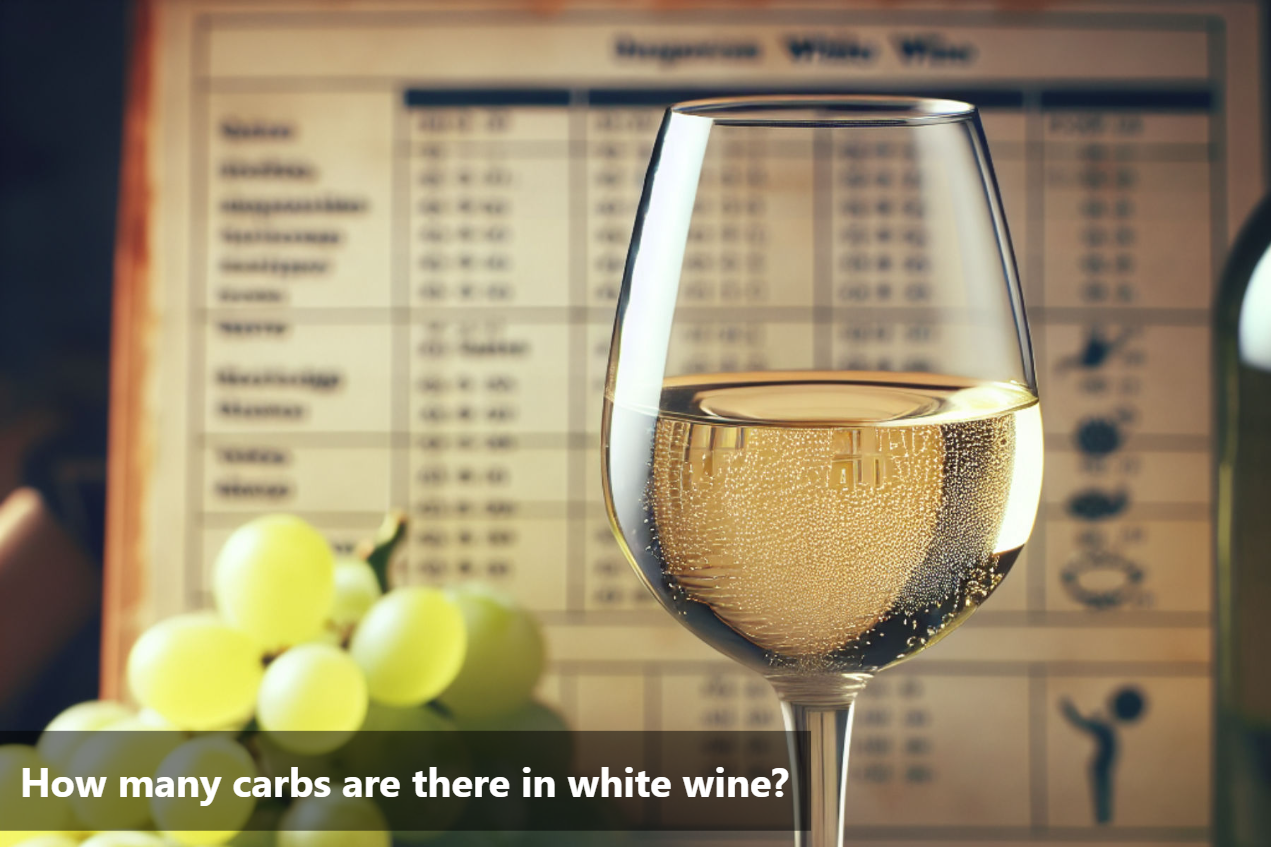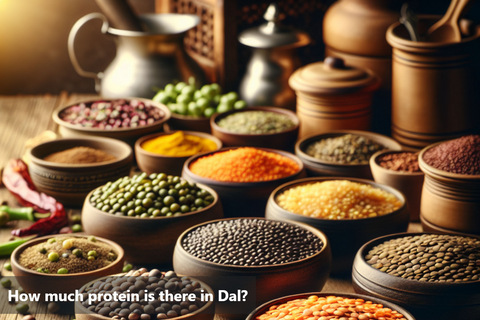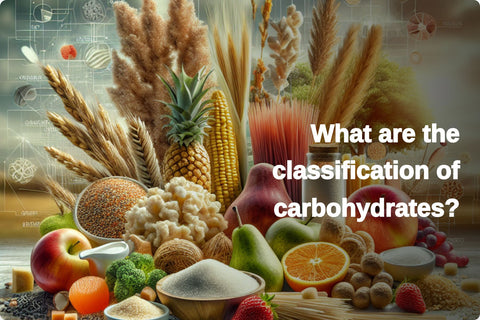
How many carbs are there in white wine?
Knowing the carb content of white wine is crucial for individuals who are conscious of their carbohydrate intake. Understanding the carb content of white wine allows individuals to make informed choices about their drinking habits. By being aware of the carbs in white wine, one can better manage their overall carbohydrate consumption and make adjustments as needed. This knowledge empowers individuals to enjoy white wine responsibly while being mindful of their carb intake.
One common misconception is that all wines, including white wine, are carb-free. However, the fermentation process of wine naturally produces carbohydrates. Different white wine varieties and sweetness levels can significantly impact the carb content, making it essential to pay attention to labels and serving sizes.

Nutritional Insights of White Wine
One 5-ounce glass (147g) of white table wine contains:
Calories |
121 |
Fat |
0g |
Sodium |
7.4mg |
Carbohydrates |
3.8g |
Fiber |
0g |
Sugars |
1.4g |
Protein |
0.1g |
Alcohol |
15g |
Tips for Choosing Low-Carb White Wine
Selecting the right white wine with lower carb content can be a smart choice for those watching their carb intake without compromising on flavor.
When looking for low-carb options, opt for dry white wines such as Sauvignon Blanc, Pinot Grigio, or Chardonnay as they generally have fewer carbohydrates compared to sweeter varieties.
Another useful tip is to check the alcohol content of the wine, as higher alcohol levels typically indicate lower residual sugar and carb content. Consider wines with an alcohol by volume (ABV) of around 12-13% for potentially lower carbs.
Additionally, sparkling white wines like Champagne or Prosecco can also be good choices due to their typically lower carbohydrate content.
When in doubt, don't hesitate to ask your local wine shop or do some research on specific brands known for their low-carb white wine options. Brands like FitVine, Skinnygirl, or Be. Wines offer white wine varieties that are explicitly marketed as low in carbs, making them convenient choices for health-conscious consumers.
Remember, enjoying a glass of white wine can still be a part of a balanced lifestyle when mindful choices are made. By selecting white wines with lower carb content and being aware of different varieties and brands, you can savor your wine while keeping your carb consumption in check.
Nutrient-Rich Alternatives to White Wine
Drink |
Nutrients |
Benefits |
|---|---|---|
Sparkling Water with Citrus |
Sparkling water is calorie-free and hydrating. Adding citrus fruits like lemon or lime provides a burst of vitamin C and flavor without added sugar. |
This refreshing drink is a great alternative to white wine, especially for those looking to reduce their alcohol intake or calorie consumption. It keeps you hydrated while offering a zesty and satisfying flavor. |
Kombucha |
Kombucha is a fermented tea beverage rich in probiotics, B vitamins, and antioxidants. It typically contains a small amount of sugar, but many varieties offer low-sugar or sugar-free options. |
Kombucha supports gut health due to its probiotic content, aids digestion, boosts immunity, and provides a natural energy boost. It's a flavorful and unique alternative to white wine, offering a fizzy texture and various flavor profiles. |
Herbal Tea |
Herbal teas come in a wide range of flavors and varieties, such as chamomile, peppermint, or ginger. They are naturally free of calories and caffeine, making them a healthy choice. |
Herbal teas offer various health benefits depending on the herbs used. For example, chamomile tea promotes relaxation and sleep, peppermint tea aids digestion, and ginger tea soothes nausea and supports immune health. They provide hydration and can be enjoyed hot or cold. |
Coconut Water Mocktail |
Coconut water is naturally low in calories and rich in electrolytes like potassium, magnesium, and calcium. Combining it with fresh fruit juices or herbs adds flavor without added sugar. |
Coconut water replenishes electrolytes and hydrates the body, making it an excellent alternative to white wine, especially after exercise or on a hot day. It offers a tropical taste and provides essential nutrients for overall well-being. |
Fruit Infused Water |
Infusing water with fresh fruits like berries, cucumber, or watermelon adds natural flavor and a hint of sweetness without added calories or sugar. It provides vitamins, minerals, and antioxidants. |
Fruit infused water keeps you hydrated and supports detoxification. It's a versatile alternative to white wine, allowing you to customize flavors based on your preferences. Plus, it's perfect for quenching thirst and staying refreshed throughout the day. |

Navigating White Wine Carbs
When pondering "how many carbs are in white wine," it is apparent that typical servings harbor varying amounts, with some varieties containing higher carbohydrate levels than others. This variance underscores the importance of being discerning in wine selection for those monitoring their carb consumption.
For those seeking to enjoy white wine while prioritizing a lower carb intake, the tips for choosing low-carb white wine provided can serve as a helpful guide. By opting for specific brands or varieties known for their reduced carbohydrate content, wine enthusiasts can savor their favorite libations without compromising their dietary goals.
Balancing enjoyment with mindfulness, individuals can revel in the world of white wine while making informed choices aligning with their dietary preferences. Cheers to sipping smartly and relishing the complexities of white wine without veering off the carb-conscious path.
This Blog post is an initiative by Lo! Foods, to provide accurate and Nutritionist / Doctor approved information related to Health. Lo! Foods is India's leading brand for Everyday Functional Foods. Foods designed for specific Health conditions or Needs. Lo! Foods also runs India's largest range of Low Carb Healthy Cloud Kitchens, under the brand names of Lo!, ProteinChef, ATH (All Things Healthy) and DiabeSmart.















Leave a comment
Your email address will not be published.